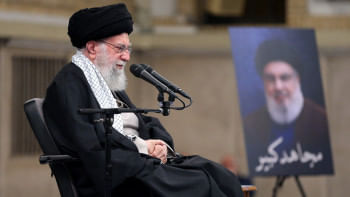BTRC in chains: How bureaucracy is killing innovation

Bangladesh's digital aspirations are at risk. The Bangladesh Telecommunication Regulatory Commission (BTRC), once an independent force driving the nation's telecom sector, is now caught in the grips of bureaucracy.
Its powers have been slowly stripped away with the 2010 amendment, and the proposed 2024 Telecommunication Act threatens to deliver the final blow. If we don't act now, Bangladesh could fall behind in the global race for innovation and digital transformation. Yuval Noah Harari describes bureaucracy as dividing tasks into "drawers" to maintain control.
Similarly, the BTRC is confined by layers of political oversight, and the 2024 amendment threatens to further trap it in bureaucratic compartments, hindering progress toward Bangladesh 2.0.
Fall from independence
When BTRC was established in 2001, it was the nation's beacon of telecom regulation. Whether it was issuing licenses, allocating spectrum or setting tariffs, the commission was empowered to regulate without interference.
But the vision began to crumble with the 2010 amendment. The government's hand reached into the BTRC's authority, requiring ministerial approval for all major decisions. It was the beginning of a devastating erosion as bureaucracy took over and innovation took a back seat.
2024 draft: The final blow
Now, the proposed 2024 amendment to the Telecommunication Act seeks to complete the BTRC's transformation from an independent regulator into a mere bureaucratic arm of the telecom ministry. The commission will have to seek approval from the ministry for almost everything, from licensing to revenue management and even staff recruitment.
Imagine the result -- a regulator incapable of acting on its own, constrained by politics and delays. Besides, the revenue collected from licenses and spectrum fees will now go directly to the government's exchequer, leaving the BTRC powerless to invest in much-needed technological upgrades.
Why BTRC's independence is crucial
The world is moving faster than ever, with 5G technology, smart cities, and IoT redefining industries globally. So, a constrained BTRC will struggle to keep up with these innovations, stalling the country's journey toward Bangladesh 2.0.
Foreign investors will also be reluctant to enter a market where the regulator is politically compromised. Investors crave stability and transparency, both of which are in jeopardy if the BTRC remains trapped in bureaucratic red tape.
The ILDTS policy and internet pricing
Adding to the crisis, the BTRC is shackled by outdated policies like the International Long-Distance Telecommunication Services (ILDTS) Policy, originally created to curb VoIP misuse but now outdated and irrelevant. Meanwhile, internet pricing in Bangladesh remains prohibitively high, and it's the citizens who pay the price.
Accountability without erosion
It's understandable that accountability is essential for the BTRC, but stripping away its powers is not the answer. Transparency mechanisms, like external audits and performance reviews, could ensure that the BTRC operates fairly without choking its ability to regulate. The commission needs the freedom to act, but with appropriate oversight to maintain integrity.
Conclusion
The BTRC stands at the crossroads of regulatory freedom and bureaucratic control. The 2010 amendment was the first strike, and the 2024 draft law threatens to deliver the fatal blow. If the BTRC is reduced to a political puppet, our dreams of becoming a global leader in telecommunications will die with it. We cannot afford to let bureaucracy kill innovation in a time when the world is racing forward.
So, now is the time to restore BTRC's freedom and reignite the flame of progress before it's too late.
The author is a telecom policy analyst

 For all latest news, follow The Daily Star's Google News channel.
For all latest news, follow The Daily Star's Google News channel. 



Comments